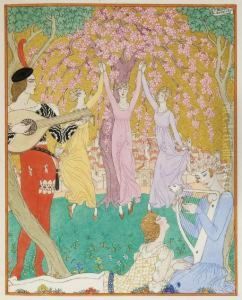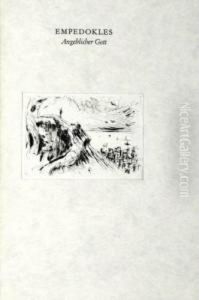Marcel Schwob Paintings
Marcel Schwob was a French symbolist writer and intellectual, born on August 23, 1867, in Chaville, Hauts-de-Seine, France. He was known for his erudition and the eclectic range of subjects he addressed in his writings. Schwob came from a cultured family; his father was a well-known doctor and his uncle, Léon Schwob, was involved in the literary circles, which influenced Marcel’s early exposure to literature and art.
Schwob was a prolific writer and a key figure in the symbolist movement, which emphasized the symbolic importance of art and was characterized by a rejection of naturalism and realism in favor of spirituality, imagination, and dreams. Schwob's works are often marked by a fascination with the arcane, the mysterious, and the esoteric, blending historical fact with imaginative fiction. His storytelling was innovative for its time, often exploring the lives of historical figures through a series of interconnected short stories, a technique that prefigured modernist approaches to narrative.
One of Schwob's most famous works is 'Vies imaginaires' (Imaginary Lives), published in 1896, which consists of twenty-two semi-biographical short stories that blend truth and fiction to explore the lives of historical and legendary figures. These stories reveal his interest in the marginal, the forgotten, and the obscure. His other notable works include 'Le Livre de Monelle' (The Book of Monelle) in 1894, which provided a synthesis of his philosophical and artistic ideas, and 'Cœur double' (Double Heart) in 1891, a collection of short stories.
Schwob was also a translator and brought the works of the English playwright Robert Louis Stevenson to a French audience, with whom he developed a close friendship. Schwob's influence extended beyond literature into the realm of philosophy and the arts, where his ideas intersected with those of other avant-garde writers and thinkers of the time.
Marcel Schwob's health was always fragile, and he suffered from a chronic illness that led to his premature death on February 26, 1905, at the age of 37, in Paris, France. Despite his short life, Schwob's work had a lasting impact on literature, influencing later writers such as Jorge Luis Borges and Roberto Bolaño. His legacy is that of a writer who pushed the boundaries of literary form and content, and who remains an important figure for scholars interested in the symbolist movement and the development of 20th-century literature.

